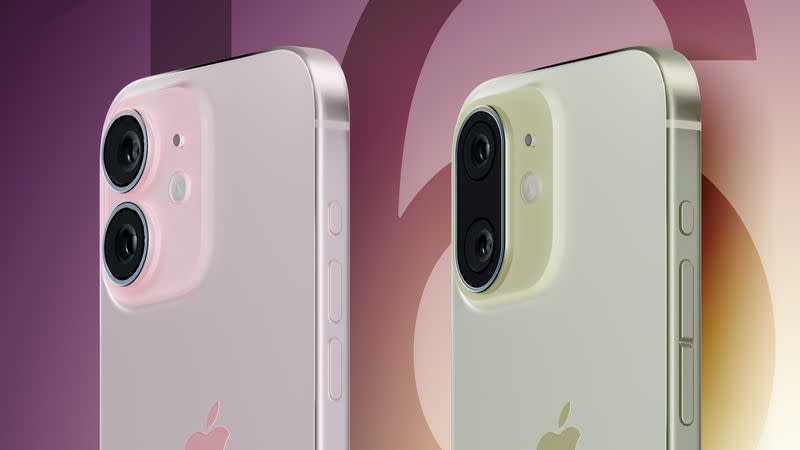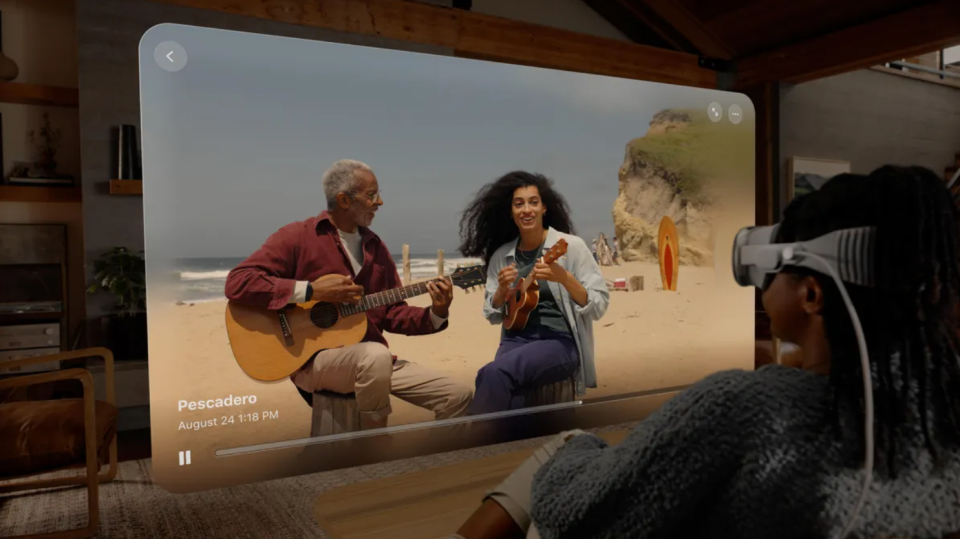iPhone 16 and spatial video — what it means for the Apple Vision Pro

Apple seems to have spatial video on its mind as of late, and an influx of news related to the more immersive video could give us a clue as to one of the marquee capabilities headed to the iPhone 16.
Some iPhones are already capable of recording spatial video, at least if they've upgraded to iOS 17.2. That newly released update allows the iPhone 15 Pro and iPhone 15 Pro Max to capture spatial video by simultaneously recording footage with both their main and ultrawide camera lenses.
The captured footage is then saved as a single file, with some computational editing combining the different angles into one shot. Viewed on your iPhone screen, it will look like a typical video, but put on the upcoming Apple Vision Pro headset, and you'll see a video with greater depth that offers a 3D-like feel of the footage happening right in front of you.

We don't just have to take Apple's word for it. This week, a group of tech writers got the chance to take the spatial videos they had shot using an iPhone 15 Pro and watch them using a Vision Pro headset. One participant said the resulting experience nearly moved him to tears, and everyone who took part seems to agree that this is a much more immersive way to relive all those important moments you've captured on video.
You may have spotted some key limitations there. For spatial video to be of any value to you, you're going to need a Vision Pro headset — a product that isn't even out yet and that will cost $3,500 when it does appear, possibly as soon as January 2024.
Setting aside that hurdle, the only devices capable of capturing footage at this point are Apple's two most expensive phones — the $999 iPhone 15 Pro and $1,199 iPhone 15 Pro Max. So we're talking a minimum of $4,500 to enjoy spatial videos to their fullest. That's the kind of price that would move me to tears, but only when looking at my credit card balance.
Spatial video and the iPhone 16

That's where the iPhone 16 comes in. Because another bit of news leaked out this week that suggests the ability to capture spatial video could be in the hands of more people once the next round of iPhones emerges in the fall of 2024.
Specifically, alleged iPhone 16 prototypes appeared on MacRumors recently, and they show off a phone with a key change from the current iPhone 15. The back of the prototypes feature vertically aligned wide and ultrawide camera lenses, returning to the layout used in 2020's iPhone 12. Currently, the iPhone 15 arranges its rear camera lenses diagonally.
There's a practical reason for this potential change. Having the wide and ultrawide cameras stacked vertically means they'll be able to capture spatial video, since that's the same way those two cameras are stacked on the iPhone 15 Pro models. (The telephoto lens on Apple's Pro phones is, of course, off on its own.)
Rearranging the camera lenses on the iPhone 16 would solve one piece of the puzzle, but it's not the only thing standing between spatial video and a wide audience. Presumably, the standard iPhone would also require a more powerful chipset. Fortunately, a current rumor suggests that all iPhone 16 models are slated to get a variation of Apple's A18 silicon, which you would imagine brings enough processing muscle to the table.
Now, the standard iPhone is no one's idea of an inexpensive handset, with the current model starting at $799. But that is less than what an iPhone Pro costs, so it would alleviate some of the financial strain of having an iPhone capable of recording spatial video and a headset that allows you to enjoy that footage.
Spatial video — game changer or not?

So will the prospect of being able to capture spatial video be the killer feature that pushes iPhone 16 upgrades next fall? That conclusion requires some Olympic-level leaping abilities.
Keep in mind that Apple will likely give people plenty of reasons to consider an iPhone 16 next fall. Beside the likely processor upgrade, there's a chance the Action button that debuted on the iPhone 15 Pro will find its way to the standard iPhone in 2024. And there's the prospect of more AI-powered features, with the iPhone 16 boasting enough horsepower to handle them on the device itself rather than turning to the cloud for help. List all the potential improvements to the iPhone 16, and I'm not sure that spatial video capture would crack the top few entries.
There's also the matter of the $3,500-shaped elephant in the room when considering how popular a feature spatial video will be. And as impressive as some Apple Vision Pro hands-on reports make the headset sound, we're still talking about a niche device that's not going to have a wide audience. Being able to watch a birthday part up close and personal isn't likely to convince people to spend several thousand dollars that may not otherwise be in their budget.
Instead, I think spatial video capture — if it comes to the iPhone 16 — is more of a long-term feature. After all, we're holding on to our smartphones for longer periods of time these days. And during the time in which you own an iPhone 16, that rumored lower-cost version of a spatial computing headset from Apple may finally appear. If it does, you'll already have the smartphone that can support it.
From the initial report about spatial video, it sounds like Apple has a winning feature on its hand to promote its new headset. Adding the ability to capture those videos with a lower priced iPhone is the next step — but there are many more steps after that before Apple's spatial computing device goes mainstream.
